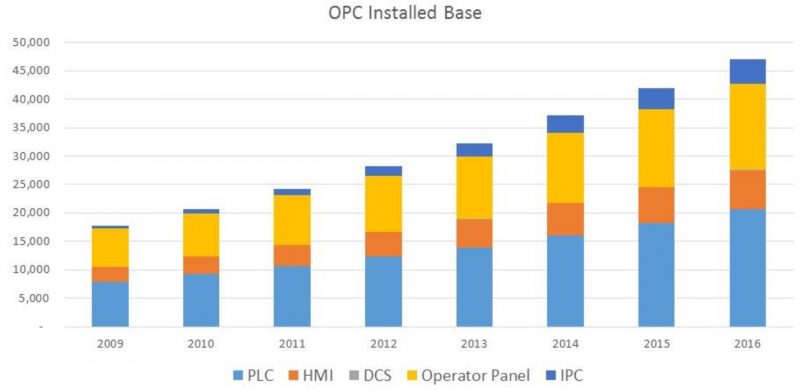 OPC Foundation announced the release of an in-depth ARC Advisory Group report on the important role the OPC data connectivity standards play in control automation today and in future IIoT and Industrie4.0 based solutions.
OPC Foundation announced the release of an in-depth ARC Advisory Group report on the important role the OPC data connectivity standards play in control automation today and in future IIoT and Industrie4.0 based solutions.
Find the ARC Advisory Group report here
Key ARC report findings confirmed that with an estimated global install base of over 45 million units, OPC is the de facto standard for open data connectivity and that OPC UA is well positioned to serve as the next data connectivity foundation for control automation applications in traditional industrial settings and new ones like building automation, transportation, and others. Key contributing factors to the continued success of OPC UA included the scalability, performance, and robustness of the technology and the large community of end-users, vendors, and other standards bodies actively working with the OPC Foundation to best utilize OPC UA in their applications.
According to Thomas Burke, OPC Foundation president, “the [ARC report] findings accurately reflect what we [OPC Foundation] have been seeing from an adoption and collaboration point of view. I highly recommend reading this ARC report for a high level perspective of what OPC UA is doing in the market and the future of data connectivity.”
Commenting on the popularity of the OPC UA standard, Mr.Burke explained “OPC UA has something to offer for everyone from end-users and product vendors to other standards bodies. After people look at what is really out there as far as a single standard that has the scalability, performance, and flexibility to meet the challenges of modern data connectivity and interoperability and has the reputation and a large enough adoption base needed to make it a safe investment – they come to realize OPC UA is the real deal.”
“OPC technology has become a de facto global standard for moving data from industrial controls to visualization up to MES/ERP and IT cloud levels”, according to Craig Resnick, Vice President, ARC Advisory Group. “The rapid expansion of OPC UA in automation, IIoT, and into new, non-industrial markets suggests that OPC will remain an important technology for multivendor secured interoperability, plant floor-to-enterprise information integration, and a host of other applications yet to be envisioned.”